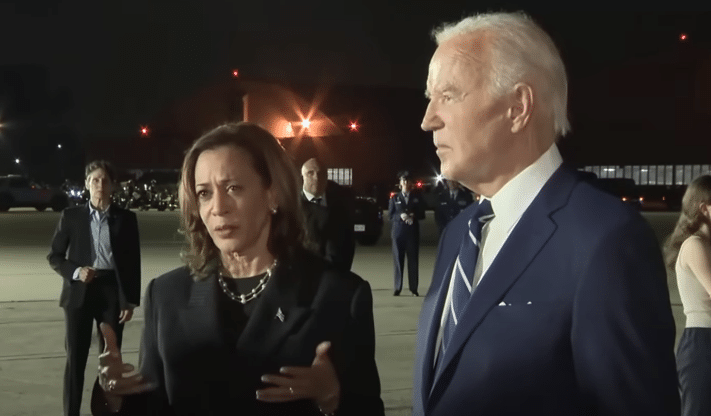“Simple question: Are you better off now than you were four years ago?”
That was former President Donald Trump’s pitch to voters in Allentown, Pa. on Oct. 29, quoting the oft-repeated adage from Ronald Reagan’s successful 1980 presidential bid that ousted then incumbent President Jimmy Carter.
At the time, the U.S. was in the middle of a recession, with the unemployment rate at 7.5 percent on Election Day and annual inflation at 12.6 percent. The result was a landslide, with Reagan winning 44 states, easily winning the Electoral College, but also picking up 9 seats in the Senate and 34 seats in the House for Republicans.
In 2024, the election will almost certainly be closer but Trump is still seeking to remind voters that their pocket books still have not caught up to the inflation that peaked at 9.1 percent in 2022, unemployment is up almost 1.3 million since Dec. 2022 and that President Joe Biden and Vice President Kamala Harris have sat idly as millions of illegal aliens have been allowed to come to the U.S. during their tenure in office.
For starters, consumer inflation is up 19.87 percent since Jan. 2021, while median weekly nominal earnings are only up 18.5 percent.
It’s like that across the board. Since Jan. 2021, food prices have increased 22.3 percent, faster than the American people’s incomes, with a weekly reminder every time they go to the grocery store.
Energy is up 29.4 percent as the Biden-Harris administration blocked expansive leasing on federal lands for new oil and gas exploration, despite Russia’s invasion of Ukraine that disrupted global supply chains.
That includes gasoline, which has increased 38.4 percent since Jan. 2021 after oil production failed to catch up to demand following the Covid recession, not reaching Dec. 2019 levels of 12.9 million barrels a day until July 2023. Today it’s higher than that at 13.4 million barrels a day, but still not enough for prices to return to their earlier levels.
And electricity, which has increased 23.8 percent since Jan. 2021 as the Biden-Harris administration continues to transition the U.S. economy away from carbon-based electricity without a sufficient offset — on purpose.
In 2008, the U.S. total electric power industry was producing 4.119 billion megawatt hours (MWh), including 1.985 billion MWh from coal, 882.4 million MWh from natural gas and 56.2 million MWh from solar and wind combined, data from the U.S. Energy Information Administration (EIA) shows.
And in 2022, total electricity output was up to 4.230 billion MWh, including 831 million MWh from coal, 1.687 billion MWh from natural gas and 578 million MWh from solar and wind combined.
In the meantime, the U.S. population has increased by more than 30 million to 334.9 million, a 10.1 percent increase. But overall electricity generation has only increased by 2.6 percent. Demand is up, but electricity production has not kept up — by design. The idea is to drive up prices to force the transition to the so-called green economy.
It’s the same story with shelter, with prices for homes and rent up 22.9 percent since Jan. 2021 despite 1.5 million new housing starts every year. The trouble?
Since Feb. 2021, there have been 8.3 million encounters by the U.S. Border Patrol on the southwest border, the most in recorded U.S. history, of which, most were allowed to remain.
For example, in Fiscal Year 2024, of the 2.75 million southwest border encounters, 1.4 million were Title 8 apprehensions, of which only about 309,000 were subjected to expedited removal, about 109,000 were detained pending proceedings and another 139,000 voluntarily returned, with almost all of the rest given a voluntary “notice to appear” for later immigration proceedings. The rest were just caught and released. In other words, about 2.2 million stayed.
And they are competing for scarce housing, despite home construction continuing — but also food and energy and everything else.
The point former President Trump and Sen. J.D. Vance (R-Ohio) have been making is, they shouldn’t even be here, driving up demand in the first place. And if the American people are not better off because of it, it might not be on the illegal immigrants per se for exploiting the porous border — it might be on Biden and Harris for leaving the door wide open.
Now, is all that enough to overcome the incumbency advantage that Harris possesses in this reelection cycle? First term incumbent parties tend to win reelection about 66 percent of the time regardless of the nominee. A Trump win will say it was but a Harris win might mean the American people have not paid nearly a big enough price in order to change voters’ typical complacency in favor of the status quo as we reach the midpoint of the political cycle. Either way, we’ll find out on Tuesday, Nov. 5. Stay tuned.
Robert Romano is the Vice President of Public Policy at Americans for Limited Government Foundation.







